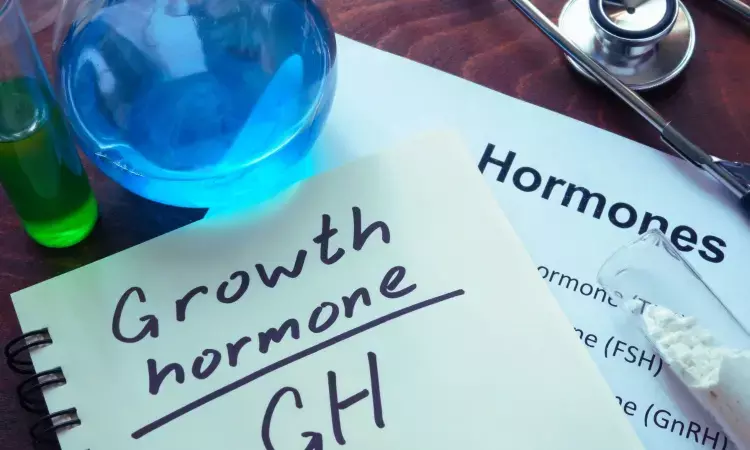- Home
- Medical news & Guidelines
- Anesthesiology
- Cardiology and CTVS
- Critical Care
- Dentistry
- Dermatology
- Diabetes and Endocrinology
- ENT
- Gastroenterology
- Medicine
- Nephrology
- Neurology
- Obstretics-Gynaecology
- Oncology
- Ophthalmology
- Orthopaedics
- Pediatrics-Neonatology
- Psychiatry
- Pulmonology
- Radiology
- Surgery
- Urology
- Laboratory Medicine
- Diet
- Nursing
- Paramedical
- Physiotherapy
- Health news
- Fact Check
- Bone Health Fact Check
- Brain Health Fact Check
- Cancer Related Fact Check
- Child Care Fact Check
- Dental and oral health fact check
- Diabetes and metabolic health fact check
- Diet and Nutrition Fact Check
- Eye and ENT Care Fact Check
- Fitness fact check
- Gut health fact check
- Heart health fact check
- Kidney health fact check
- Medical education fact check
- Men's health fact check
- Respiratory fact check
- Skin and hair care fact check
- Vaccine and Immunization fact check
- Women's health fact check
- AYUSH
- State News
- Andaman and Nicobar Islands
- Andhra Pradesh
- Arunachal Pradesh
- Assam
- Bihar
- Chandigarh
- Chattisgarh
- Dadra and Nagar Haveli
- Daman and Diu
- Delhi
- Goa
- Gujarat
- Haryana
- Himachal Pradesh
- Jammu & Kashmir
- Jharkhand
- Karnataka
- Kerala
- Ladakh
- Lakshadweep
- Madhya Pradesh
- Maharashtra
- Manipur
- Meghalaya
- Mizoram
- Nagaland
- Odisha
- Puducherry
- Punjab
- Rajasthan
- Sikkim
- Tamil Nadu
- Telangana
- Tripura
- Uttar Pradesh
- Uttrakhand
- West Bengal
- Medical Education
- Industry
Glucagon test useful alternative to insulin tolerance test in Diagnosing GH Deficiency in Transition Age, finds research

Italy: A recent study published in The Journal of Clinical Endocrinology & Metabolism has shed light on the accuracy of glucagon testing across transition in young adults with childhood-onset growth hormone deficiency (GHD).
The study showed that a GH peak to glucagon test (GST) <5.8 μg/L is an accurate diagnostic cutoff for young adults with childhood-onset GHD and a high pretest probability of permanent GHD.
Our data confirm GST to be a safe alternative to insulin tolerance test (ITT) for evaluating GH secretion in young adults with childhood-onset GHD following attainment of adult height and that patients who demonstrated peak GH < 5.8 μg/L can restart rhGH therapy, the researchers wrote.
The insulin tolerance test is the “gold standard” for GHD confirmation following the attainment of adult stature, and a GH threshold of 6 μg/L or less is recommended to determine whether GHD continues at the time of transition to adult care. However, ITT is not suited for patients with epilepsy, seizures, or cardiovascular or cerebrovascular disease. While the GST could be an alternative form of GH stimulation for determining the need for ongoing GH therapy into adulthood, there is no confirmation of diagnostic cutoffs for this test in clinical practice.
The 2019 American Association of Clinical Endocrinologists guidelines indicate peak GH cutoffs to GST of ≤3, and ≤1 µg/L in permanent GHD diagnosis during the transition phase. Considering this, Daniela Fava, Pediatric Endocrinology Unit, Department of Pediatrics, IRCCS Istituto Giannina Gaslini, Genoa, Italy, and colleagues aimed to evaluate the accuracy of GST compared to insulin tolerance test in the definition of GHD at adult height achievement.
The study included ninety-seven subjects with childhood-onset GHD (median age, 17.39 years). They underwent ITT, GST, and IGF-1 testing; 44 subjects were idiopathic (isolated GHD), 35 moderate organic GHD (0-2 hormone deficiencies), and 18 severe organic GHD (≥3 hormone deficiencies).
The study led to the following findings:
- Bland and Altman's analysis showed a high consistency of GH peak measures after ITT and GST.
- Receiver operating characteristic analysis identified 7.3 μg/L as the optimal GH peak cutoff to GST [sensitivity 95.7%, specificity 88.2%, positive predictive value (PPV) 88.0%, negative predictive value (NPV) 95.7%] able to correctly classify 91.8% of the entire cohort while 5.8 μg/L was the best GH peak cutoff able to correctly classify 91.4% of moderate organic GHD patients (sensitivity 96.0%, specificity 80.0%, PPV 92.3%, NPV 88.9%).
- Patients with ≥3 hormone deficiencies showed a GH peak <5 μg/L at ITT and <5.8 μg/L at GST but 1.
- The optimal cutoff for IGF-1 was a −1.4 SD score (sensitivity 75%, specificity 94%, PPV 91.7%, NPV 81.0%) that correctly classified 85.1% of the study population.
Based on the results, the researchers propose to retest with GST all childhood onset-GHD patients with organic GHD (congenital anomalies, brain tumors, irradiation to the pituitary/hypothalamic region) with 0, 1, or 2 pituitary hormone defects with IGF-1≥ −2 SDS, and patients with idiopathic GHD with IGF-1 < 0 SDS.
Reference:
Fava, D., Guglielmi, D., Pepino, C., Angelelli, A., Casalini, E., Varotto, C., Panciroli, M., Tedesco, C., Camia, T., Naim, A., Allegri, A. E., Patti, G., Napoli, F., Gastaldi, R., Parodi, S., Salerno, M., Maghnie, M., & Di Iorgi, N. Accuracy of Glucagon Testing Across Transition in Young Adults With Childhood-Onset GH Deficiency. The Journal of Clinical Endocrinology & Metabolism. https://doi.org/10.1210/clinem/dgae408
Dr Kamal Kant Kohli-MBBS, DTCD- a chest specialist with more than 30 years of practice and a flair for writing clinical articles, Dr Kamal Kant Kohli joined Medical Dialogues as a Chief Editor of Medical News. Besides writing articles, as an editor, he proofreads and verifies all the medical content published on Medical Dialogues including those coming from journals, studies,medical conferences,guidelines etc. Email: drkohli@medicaldialogues.in. Contact no. 011-43720751


